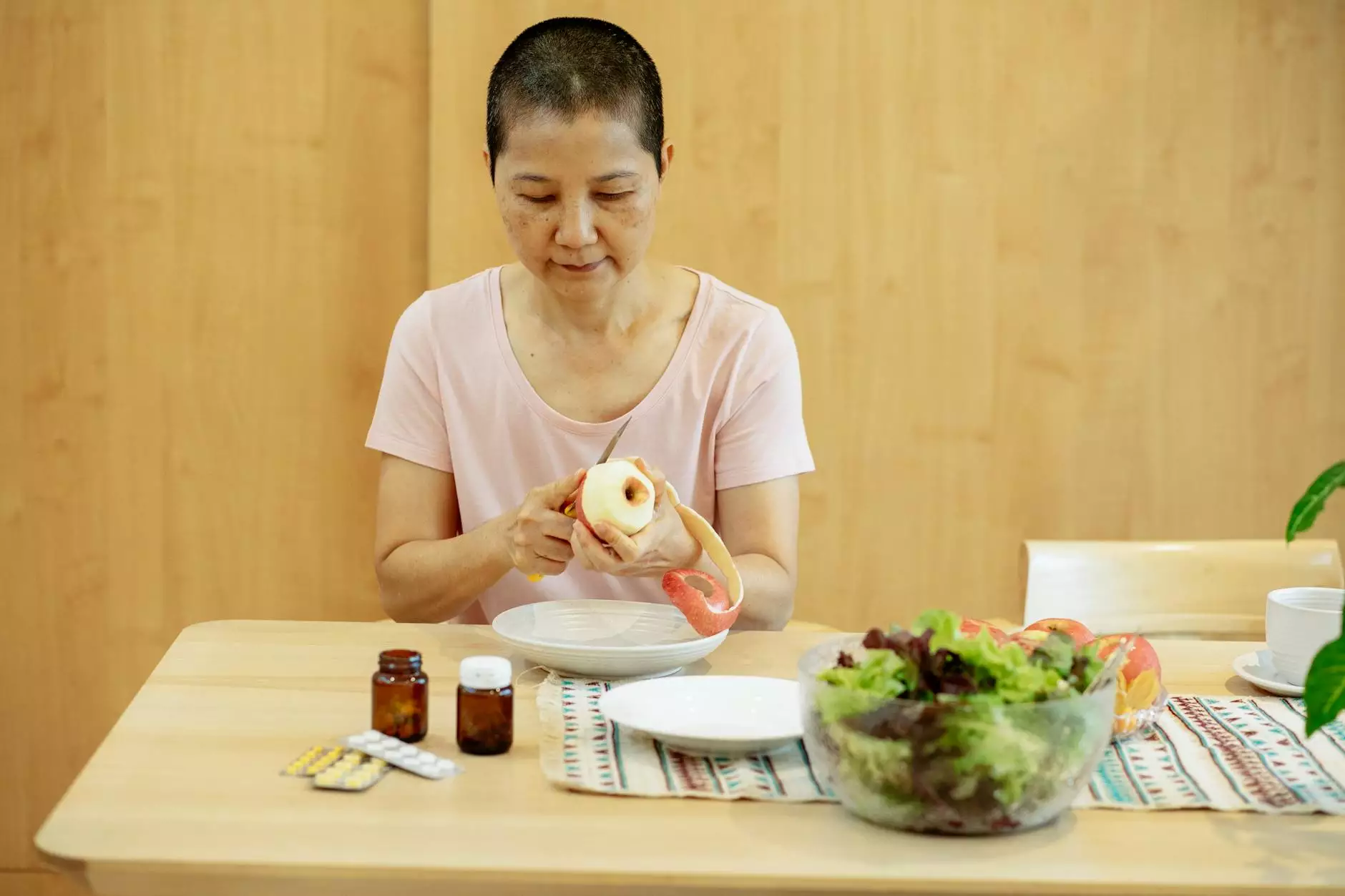Cancer Prevention through Nutrition
Health
Introduction
Welcome to the comprehensive guide on cancer prevention through nutrition provided by MUIR DIABLO OCCUPATIONAL MEDICINE. In this article, we will discuss the importance of maintaining a healthy lifestyle with a focus on nutrition to reduce the risk of developing cancer.
Understanding the Relationship Between Diet and Cancer
Evidence suggests that our dietary choices play a crucial role in cancer prevention. By incorporating a balanced diet rich in essential nutrients, vitamins, and minerals, we can significantly reduce the risk of various types of cancer. A well-rounded diet helps support a strong immune system, aids in DNA repair, and combats oxidative stress, all of which contribute to lowering the risk of developing cancer.
The Role of Antioxidants in Cancer Prevention
Antioxidants are powerful substances found in many fruits, vegetables, and whole grains that help protect our cells from damage caused by free radicals. Free radicals are unstable molecules that can harm our DNA and increase the risk of cancer. By consuming foods high in antioxidants, such as berries, leafy greens, and nuts, we can neutralize free radicals and promote overall health.
The Importance of a Plant-Based Diet
A plant-based diet, centered around fruits, vegetables, legumes, and whole grains, has been extensively studied for its cancer-fighting properties. These foods are not only rich in antioxidants but also contain phytochemicals, fiber, and other bioactive compounds that can inhibit the growth of cancer cells. Incorporating a variety of colorful plant-based foods into your diet can provide optimal cancer prevention benefits.
Specific Foods for Cancer Prevention
While a balanced diet is crucial, certain foods have been specifically linked to reducing the risk of certain cancers. Here are some examples:
Cruciferous Vegetables
Cruciferous vegetables, such as broccoli, cauliflower, and Brussels sprouts, are rich in glucosinolates, which have been associated with a lower risk of lung, colorectal, and breast cancer. Including these vegetables in your diet can provide powerful cancer-fighting benefits.
Berries
Berries, including strawberries, blueberries, and raspberries, are packed with antioxidants and polyphenols. These compounds help combat inflammation and oxidative stress, reducing the risk of various types of cancer.
Leafy Greens
Eating leafy greens, such as spinach, kale, and Swiss chard, can provide essential vitamins, minerals, and fiber. These vegetables are known for their potential to reduce the risk of stomach, colorectal, and breast cancer.
Turmeric
Turmeric, a spice commonly used in Indian cuisine, contains a compound called curcumin, which possesses powerful anti-inflammatory and antioxidant properties. Studies have suggested that curcumin may help suppress the growth of cancer cells and prevent cancer development.
Creating a Cancer-Fighting Meal Plan
Developing a well-rounded meal plan that incorporates cancer-fighting foods is an effective strategy for cancer prevention. MUIR DIABLO OCCUPATIONAL MEDICINE can assist you in creating a personalized meal plan based on your individual needs and preferences. Our team of experts will guide you in selecting the right foods and portion sizes to promote optimal nutrition and reduce the risk of cancer.
Conclusion
By prioritizing nutrition and making informed dietary choices, you can significantly lower your risk of developing cancer. MUIR DIABLO OCCUPATIONAL MEDICINE is dedicated to providing you with comprehensive guidance and support on your journey towards cancer prevention through nutrition. Contact us today to take proactive steps towards a healthier future.




